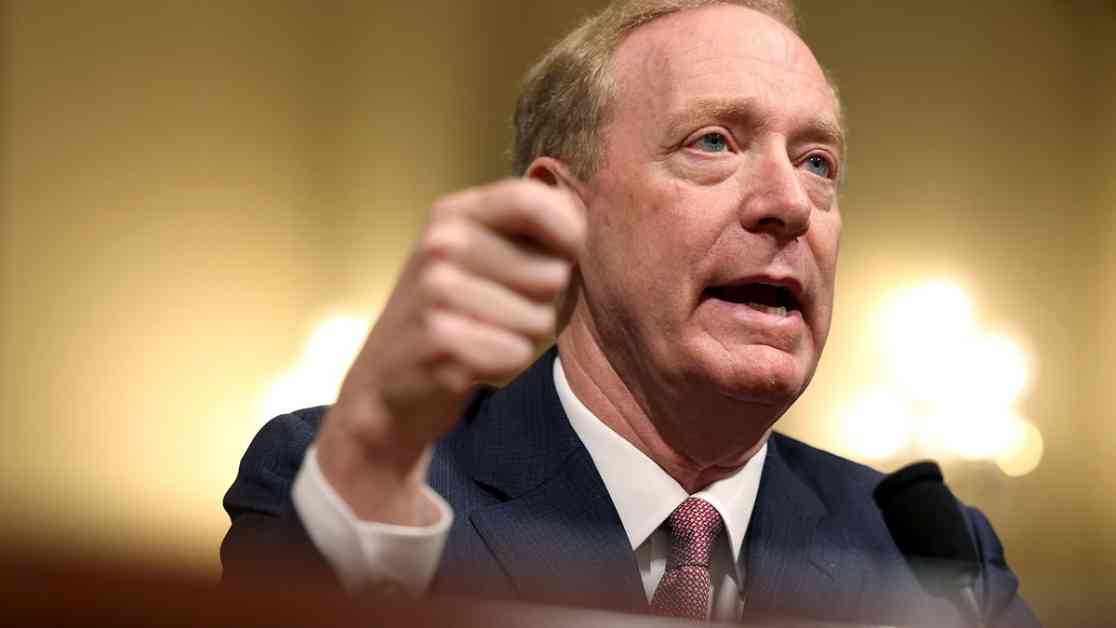Microsoft’s president, Brad Smith, recently faced a grilling from Congress over cybersecurity failures that allowed Chinese hackers to breach the tech giant’s network. The hackers gained access to the email accounts of senior US officials, including the Secretary of Commerce, Gina Raimondo. Smith admitted to every failing highlighted in a government report and apologized for the impact on those affected.
The hack involved agents of China’s Ministry of State Security, who posed as existing Microsoft customers to gain unauthorized access. This breach has led to calls for Microsoft contracts to be dropped in favor of other vendors. However, Smith argued that using multiple vendors could also pose risks, as hackers could exploit the connections between different systems.
In response to the security breach, Microsoft announced changes to its Recall feature, part of the Copilot+ AI initiative for Windows. This feature, which takes screenshots of user activity, will now be restricted to members of the Windows Insider program to ensure quality and security standards are met. The decision to limit access to Recall was made after security experts raised concerns about the potential misuse of the feature.
Despite criticism, Microsoft still plans to roll out Recall to all Copilot+ PC users in the future. The company has made changes to how Recall data is stored, including encrypting all screenshots to enhance security. However, the company’s initial approach to privacy and security in developing the feature has raised questions about its commitment to protecting user data.
As Microsoft works to address the cybersecurity issues highlighted by the recent breach, the company faces scrutiny from lawmakers and the public. The incident serves as a reminder of the importance of robust cybersecurity measures in an increasingly digital world. Microsoft’s response to the breach will likely shape its future relationships with government agencies and customers as they seek to rebuild trust and confidence in their products and services.




















